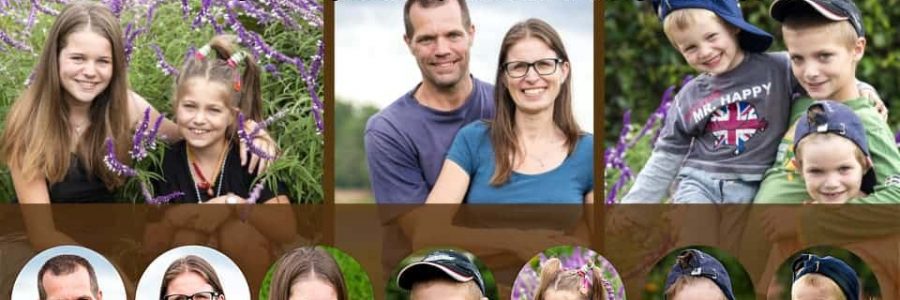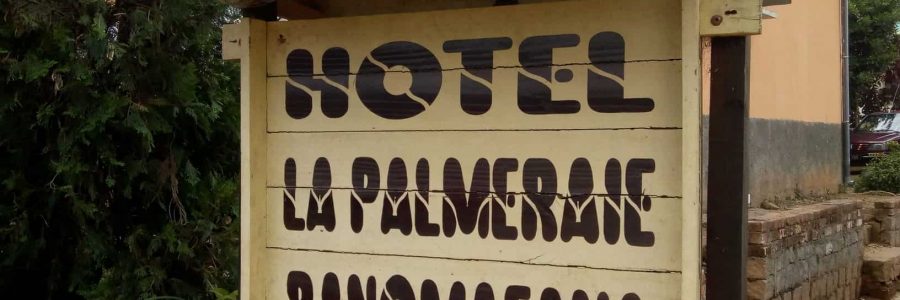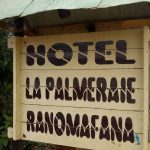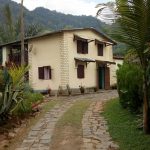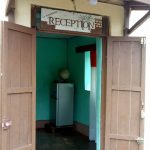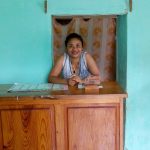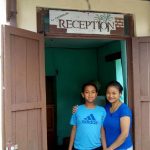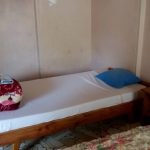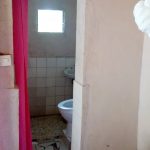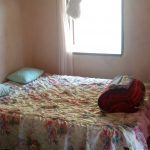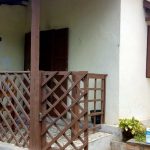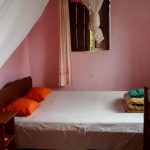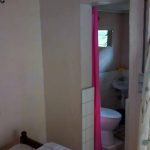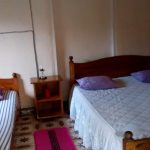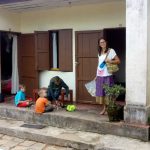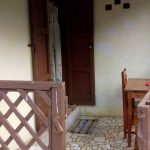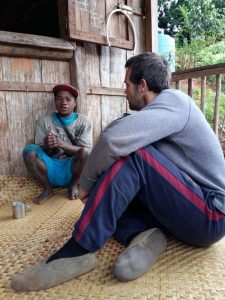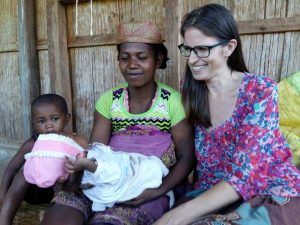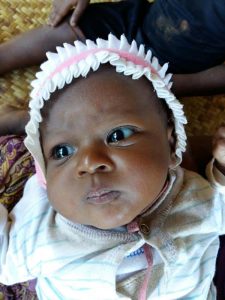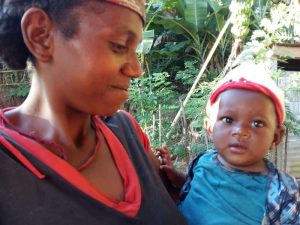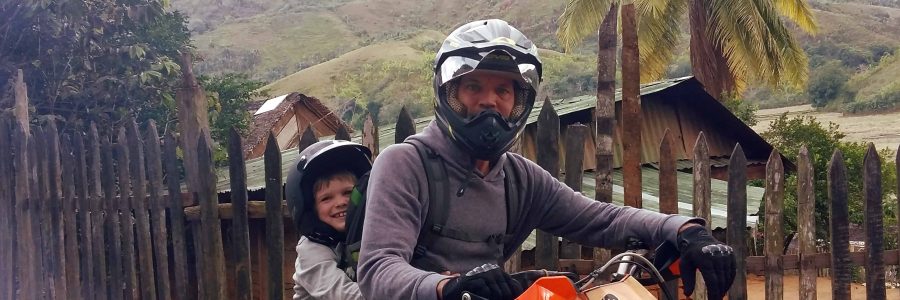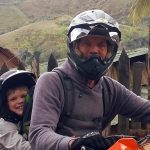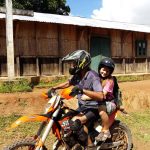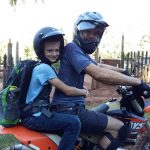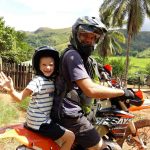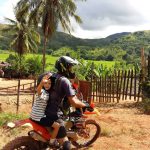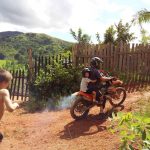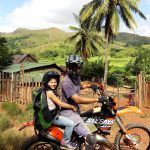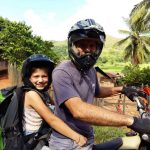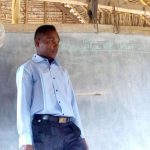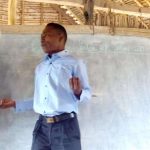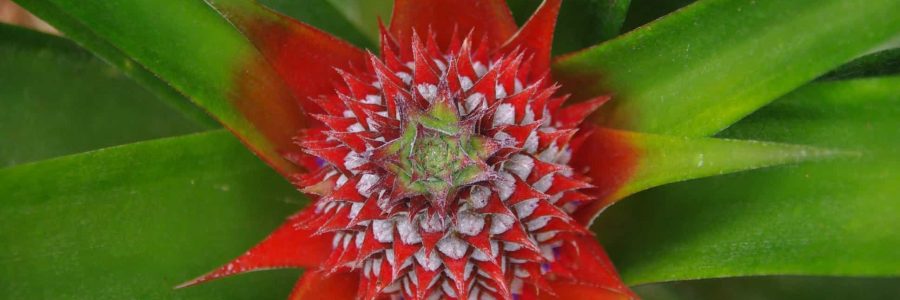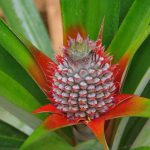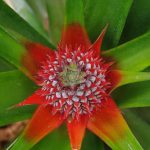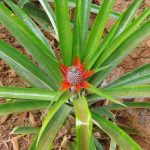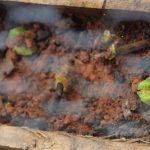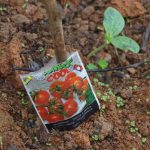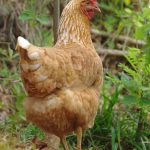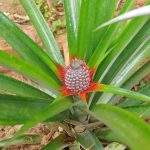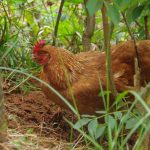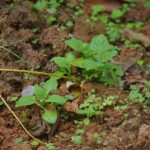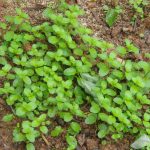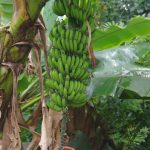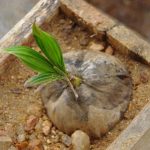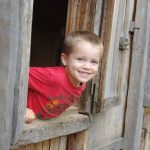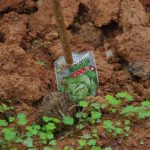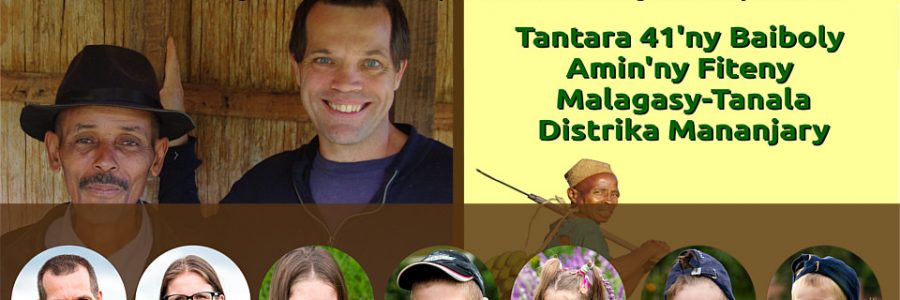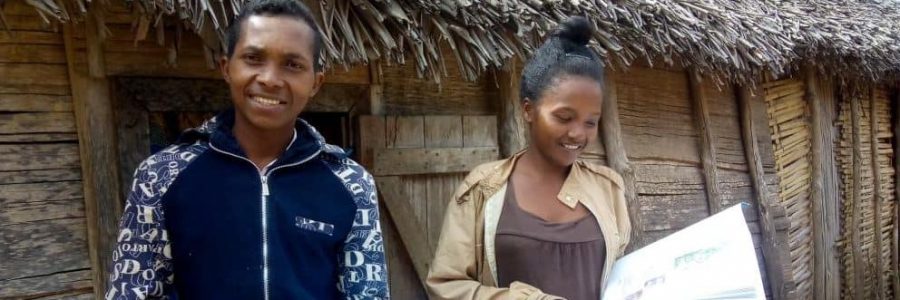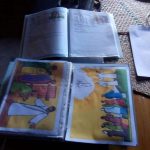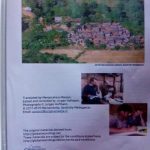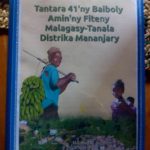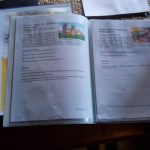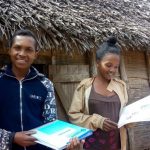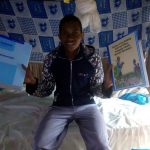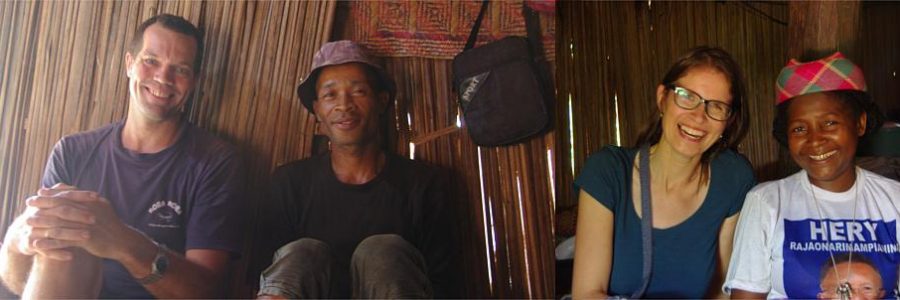Het is 3 januari en we genieten van de kerstvakantie. Het is lang geleden dat we als gezin Tsiombivohitra hebben bezocht en nu hebben we de tijd. Iaban’i en nendrin’i Melice, de koning van het dorp en zijn vrouw, weten dat we komen en hebben zich voorbereid: bij het vuur ligt al een gebonden kip klaar. ‘We blijven toch zeker eten?!’ Het is echt genieten bij hen: we krijgen allemaal—de kinderen ook—een kop koffie met suikerrietsap en we kletsen gezellig bij.
Tsiombivohitra is ‘ons eerste dorp’. Toen we hier in 2016 voor het eerst als gezin kwamen hebben we gevraagd of we als zendelingen bij hen welkom zouden zijn. We legden uit dat we ook vrienden nodig zouden hebben. Er volgde luid geroezemoes en daarbovenuit verklaarde nendrin’i Melice luid en duidelijk dat we vrienden zouden zijn. Ook toen al straalde ze: er was meteen een klik.
De mensen uit Tsiombivohitra hebben sindsdien veel geduld moeten hebben: na ons bezoek in september 2016 moest eerst ons huis gebouwd worden. In februari 2017 konden we erin. De eerste tijd waren we, behalve met het leren van het dialect en de plaatselijke cultuur, veel tijd kwijt met praktische probleem en leren hoe hier te leven. Het contact met Tsiombivohitra hielden we warm, maar van Bijbelverhalen vertellen kon nog geen sprake zijn, omdat de verhalen nog niet in het dialect waren vertaald. Tot ons eerste verlof in oktober 2017 was daarvoor 8 maanden de tijd.
In april 2018 waren we weer terug in ons huis in Maroamboka. Een van de eerste dingen die Jurgen oppakte was het contact met Tsiombivohitra. Vanaf mei vorig jaar ging Jurgen daar wekelijks heen om in het huis van de koning en zijn vrouw het evangelie te delen met wie maar horen wilde. Van meet af aan was met name nendrin’i Melice zeer geïnteresseerd. Haar man bevestigde de vriendschapsband door samen met Jurgen van hetzelfde bord te eten en uit dezelfde beker te drinken. Een andere keer zat de hut stampvol met dorpelingen.
Maar toen kwam eind juni: de koning en zijn vrouw waren niet thuis. In juli was er af en toe een enkeling die kwam luisteren, maar in augustus was het dorp leeg! We begrepen er niets van. Waar was iedereen? Het antwoord: naar de markt. Dat maakte het voor ons niet duidelijk. Naar de markt gaan is leuk, maar er was toch een afspraak? En Jurgen moest er 7 km heen en 7 km terug voor lopen in de brandende zon! We deelden onze frustraties met vrienden. Iedereen leek het de normaalste zaak van de wereld te vinden dat Tsiombivohitra leeg was op marktdag. Uiteindelijk werd ons duidelijk dat de markt vooral een sociale aangelegenheid is: daar moet je heen. We hebben ons dus maar bij de koffiemarkt neergelegd en het seizoen afgewacht. De koffie-oogst en de bijbehorende markt duurden nog tot eind november. Gelukkig ging het werk in andere dorpen ondertussen door.
Na 5 maanden pauze was het spannend de bezoeken aan Tsiombivohitra weer op te pakken: betekende hun keuze voor de markt desinteresse of was het puur een culturele aangelegenheid? Al snel werd duidelijk dat Jurgen—met Bijbelverhalen—nog steeds welkom was. De derde keer was het verhaal over de smalle en de brede weg aan de beurt, het moment in de verhalenreeks waarop mensen een keuze wordt voorgehouden. Nendrin’i Melice gaf daarop aan dat ze Jezus wilde volgen. Jurgen heeft toen uitgelegd dat het leven van een gelovige moeilijk is en dat het offers vraagt. Hij heeft haar aangeraden er goed over na te denken en gezegd wat ze zou kunnen bidden als ze door wilde zetten. De weken daarop heeft hij het verhaal herhaald, ook vanwege nieuwkomers.
Zo ook op 3 januari. Jurgen legt uit wat de 2 wegen zijn als nendrin’i Melice uitroept: ‘Ik ben op de smalle weg!’ Ze ziet zielsgelukkig en voegt later toe: ‘Ik ga naar de hemel!’
In een privégesprek vertelt de koning later dat hij en zijn vrouw nu geloven, maar dat het moeilijk is. Van een koning wordt veel verwacht en daar komt bij dat hij de jongste is van 2 koningen in het dorp. De oudere koning—tevens toverdokter—moet worden gerespecteerd. Ze beginnen nu al te ervaren dat geloven wandelen op een smalle weg is, maar het geluk is te lezen in hun ogen. Een mooier Kerstcadeau hadden we ons niet kunnen wensen dan die ochtend in Tsiombivohitra te zijn.
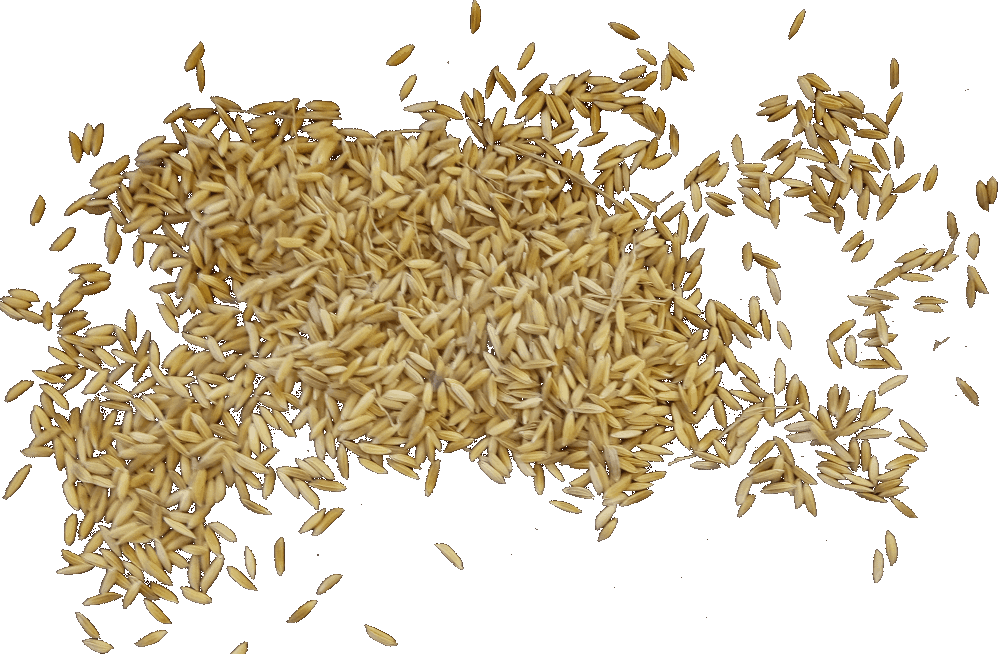
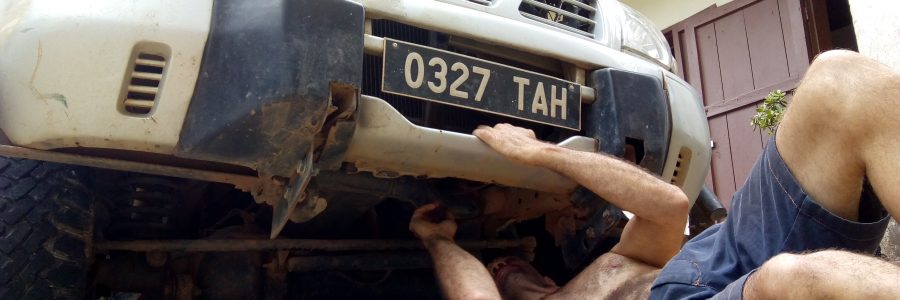
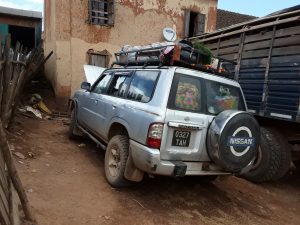
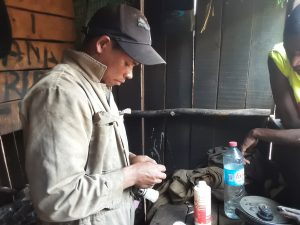
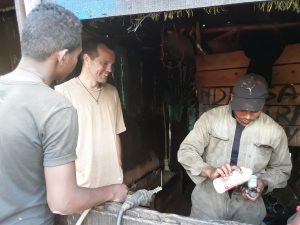
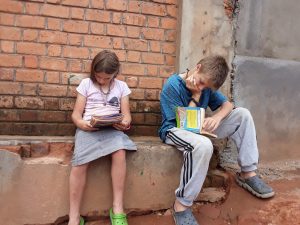
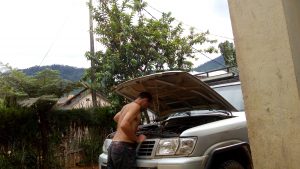
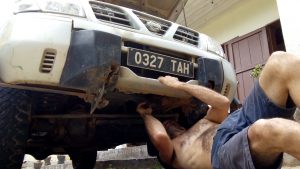
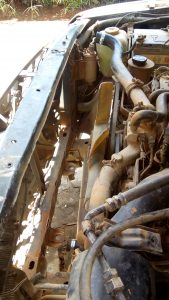
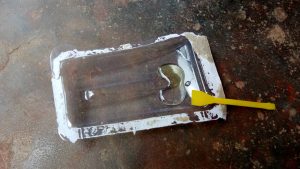
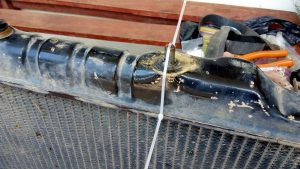
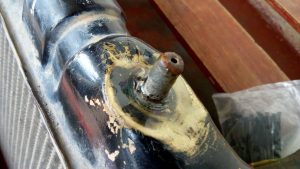
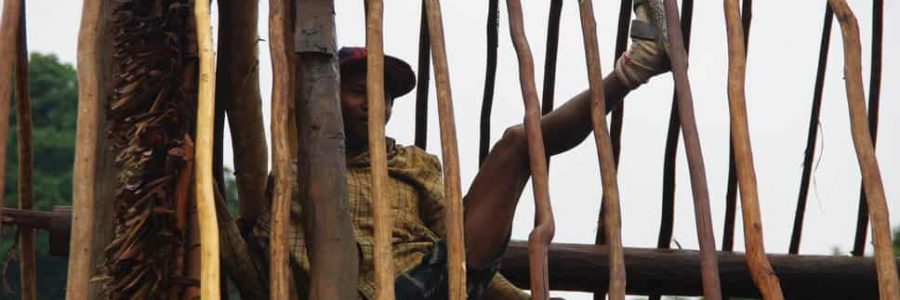
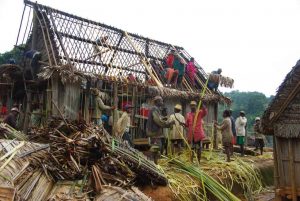 About a year ago, on a Thursday morning, Jurgen was telling the bible stories to the king of Tsiombivohitra. There was another man in the house, an older man. Jurgen did not know him and asked his name: Iaban’i Roly. The coming weeks iaban’i Roly joined the meetings in Tsiombivohitra. After getting to know each other a bit better it turned out that the man officially lived in our village. The reason Jurgen did not see him there yet? Iaban’i Roly was building a new big house (trano-be) and until it was finished he lived somewhere else.
About a year ago, on a Thursday morning, Jurgen was telling the bible stories to the king of Tsiombivohitra. There was another man in the house, an older man. Jurgen did not know him and asked his name: Iaban’i Roly. The coming weeks iaban’i Roly joined the meetings in Tsiombivohitra. After getting to know each other a bit better it turned out that the man officially lived in our village. The reason Jurgen did not see him there yet? Iaban’i Roly was building a new big house (trano-be) and until it was finished he lived somewhere else.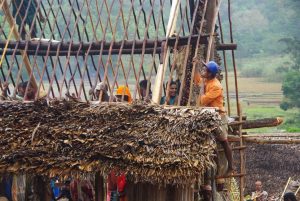 Okay, why telling this? Well, the appointment is very interesting. Iaban’i Roly is not only one of the king of Maroamboka, he is also considered to be a important and powerful witch doctor. Together with his ‘colleague’ witch doctor he has costumers from all around the area. He even receives people from the capital, Antananarivo. They come especially to get a ‘blessing’ or something else only he can provide. The Malagasy fear him. We are not worried. Although the stories are very clear on the practices of the witch doctors, Jurgen is there because he has been invited. He just couldn’t let go of this invitation.
Okay, why telling this? Well, the appointment is very interesting. Iaban’i Roly is not only one of the king of Maroamboka, he is also considered to be a important and powerful witch doctor. Together with his ‘colleague’ witch doctor he has costumers from all around the area. He even receives people from the capital, Antananarivo. They come especially to get a ‘blessing’ or something else only he can provide. The Malagasy fear him. We are not worried. Although the stories are very clear on the practices of the witch doctors, Jurgen is there because he has been invited. He just couldn’t let go of this invitation.